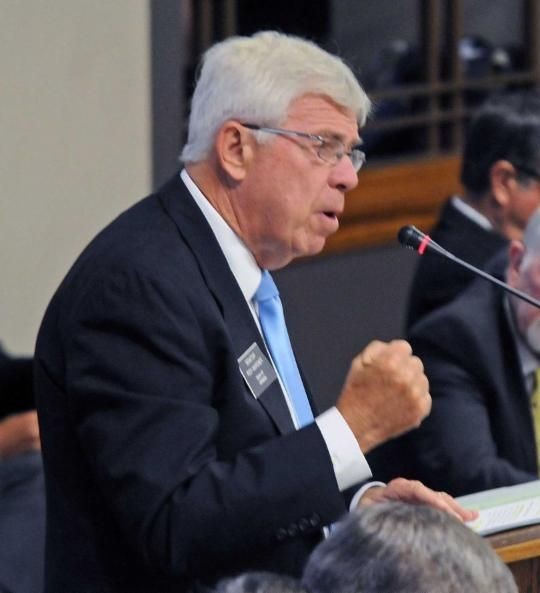-

-
Legacy Fund Q&A with Senator Wardner

In 2010, the Legacy Fund was passed by a large margin by North Dakota voters to set aside a portion of the oil and gas production and extraction tax in the state. As of August, the fund held $5.7 billion. Numerous proposals were introduced this past legislative session that focused on spending the fund's earnings. The legislature decided not to adopt any and instead look closer at the fund during the interim. House Majority Leader Chet Pollert chairs the Legacy Fund Earning Committee along with Vice Chair Rich Wardner. This committee will examine future uses and potential of the fund. Upcoming committee hearings are looking to the public for input on November 12 and 13 in Fargo.
The Greater North Dakota Chamber sat down with Senator Wardner to discuss his views on what’s happening with the committee and the Legacy Fund.
GNDC: What is the purpose of the November 12 Committee Hearing?
Senator Wardner: That first meeting will be in the evening and the purpose is to give anyone the opportunity to go to share their opinions - even those working during the day. Everybody has a view of the state’s financial situation, especially the Legacy Fund. This gives them a chance to weigh in. This is going to the grassroots and asking, “what do you think,” then taking a look at all ideas. We are expecting interesting comments - some that will be good and some that may be off-the-wall. That is what we need to be there for, to listen to the people of North Dakota.
You mentioned you were looking for public input, how would you like to see the business community get involved?
On November 13, we anticipate a different crowd from the 12th. We hope to see the business and community leaders there. This audience will have the opportunity to talk to us about the issues they see in their areas and what is important for the state. We need to stay focused on what will make North Dakota grow and become stronger.
At the Association of Counties, you shared that you intend to introduce legislation next session that would earmark 25% of the Legacy Fund earnings to the state’s Highway Trust Fund. Share your initial thoughts about this potential legislation.
We need to have good roads. As we go forward it makes sense to allocate 25%. This amount ensures everybody would get some money and it would help reduce the burden on property taxes while not forcing an increase to the fuel tax in North Dakota. That is important to business and commerce, especially those businesses that transport products. Those businesses pay taxes that support other things, education, recreation, human services in the state. If a business comes here and they know they do not need to worry about an increase in the gas tax, I think that is just as big as any tax reduction we would have in the state.
What shouldn’t the state do with the Legacy fund moving forward from here?
First of all, we need to manage it like any other financial asset. We will be proposing a five-year rolling average to calculate the earnings. We are not looking to spend all the earned income, just 4%, any earnings over that 4% will be rolled back into the fund. The fund’s earnings are looking to average anywhere from 5.5% to 6.5% over the next 10 years. This is going to be stable and we will know going into the next legislative session how much is going to be allocated versus put back within the fund. As the principle grows, so do the earnings. The big word is patience; people need patience.
Some people say why can’t we take some of the principle and put it into a fund and invest it in North Dakota? Why are we investing it all over the world, why not invest it here? There is a prudent investor rule stopping us: state law. You need to have all arms-length negotiations and contracts with this money. Number one, you have to get the highest interest rate you can. Number 2, you have to make sure it goes out for bid. Bidding is a rule in state government. The prudent investor rule is about getting the highest percentage but also the process in how we do that.
Photo credit to Bismarck Tribune.Tell a Friend
-
The catalytic leader and unifying voice for economic prosperity throughout North Dakota.

